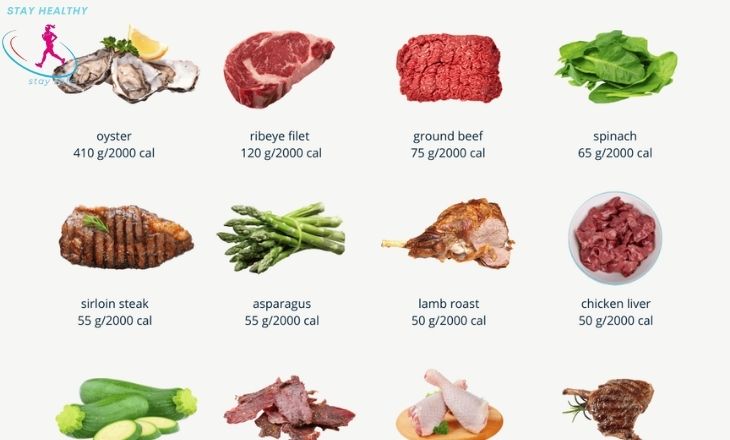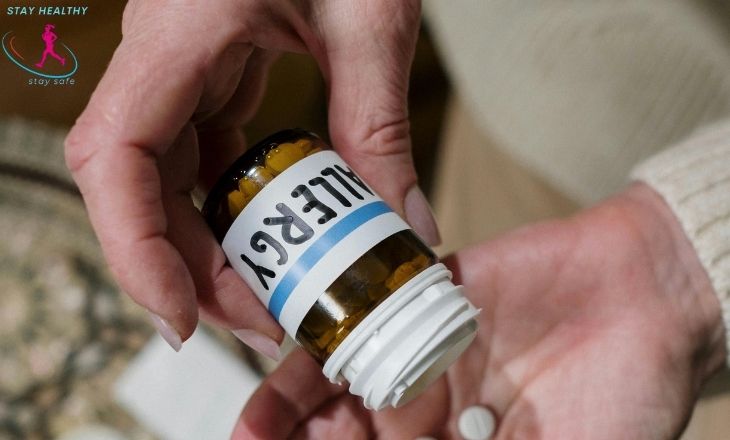Zinc deficiency is a common nutritional issue that can have significant impacts on your health. Zinc is an essential mineral that supports various bodily functions, including immune system efficiency, wound healing, and DNA synthesis.
Unfortunately, many people are unaware they are not getting enough zinc in their diet. Below are 25 signs that you might be experiencing zinc depletion symptoms.

25 Signs of Zinc deficiency
Frequent Colds
A weakened immune system is one of the primary signs of zinc deficiency. If you find yourself frequently catching colds or other infections, it may be due to insufficient zinc, which is essential for maintaining a robust immune response.
Slow Wound Healing
Zinc plays a crucial role in the body’s ability to heal wounds. If you notice that your cuts, scrapes, or bruises take an unusually long time to heal, this could be a sign that your zinc levels are too low.
Loss of Appetite
A lack of zinc can affect your sense of taste and smell, leading to a decreased appetite. This can result in unintended weight loss and nutritional deficiencies over time.
Hair Loss
Zinc deficiency can cause hair loss, as zinc is essential for hair tissue growth and repair. If you are experiencing unusual hair thinning or shedding, it may be linked to low zinc levels.

Skin Rashes
Dermatitis and other skin issues can arise when your body lacks zinc. This can manifest as red, inflamed, and scaly rashes, particularly around the face or other sensitive areas.
Diarrhea
Chronic diarrhea can be both a cause and a symptom of zinc deficiency. Persistent diarrhea can lead to further depletion of zinc and other essential nutrients in the body.
Poor Growth in Children
Zinc is vital for children’s growth and development. Slow growth, delayed puberty, or other developmental issues in children and adolescents may indicate a zinc deficiency.
Eye Problems
Zinc is essential for eye health. A deficiency can lead to issues such as night blindness, dry eyes, and general deterioration in vision quality.
Cognitive Difficulties
Zinc impacts brain function. Memory issues, difficulty concentrating, or general cognitive decline can be signs of zinc depletion, affecting both children and adults.
Decreased Sense of Taste and Smell
A reduced ability to taste or smell can be a clear indicator of low zinc levels. This sensory loss can affect your overall enjoyment and intake of food.
Weight Loss
Unintentional weight loss may occur due to a lack of zinc impacting your metabolism and appetite. If you’re losing weight without trying, consider your zinc intake.
Fatigue
Persistent tiredness and lack of energy can be a result of insufficient zinc levels. Zinc is involved in multiple enzymatic processes that produce energy in the body.
Anemia
Zinc plays a role in red blood cell production. A deficiency might contribute to anemia, which is characterized by fatigue, weakness, and pale skin.
Low Libido
Zinc is crucial for reproductive health. A lack of zinc can lead to a decreased sex drive and other reproductive issues in both men and women.
Mood Swings
Mood disorders, including depression and anxiety, can be linked to zinc deficiency. Zinc is important for neurotransmitter function and brain health.
White Spots on Nails
White spots on your nails can be a sign of a zinc deficiency. This condition, known as leukonychia, often indicates that your body is lacking essential nutrients.
Dry Skin
Zinc is necessary for skin hydration. Dry, flaky skin can indicate a deficiency, as zinc helps maintain the integrity and barrier function of your skin.

Brittle Nails
Weak or brittle nails might suggest you’re not getting enough zinc. Healthy nails require adequate zinc for strength and growth.
Joint Pain
Zinc has anti-inflammatory properties. A deficiency can lead to increased joint pain and stiffness, which can affect your mobility and quality of life.
Allergic Reactions
A lack of zinc can heighten allergic reactions or make you more susceptible to them. Zinc helps modulate the immune system to prevent overreactions.
Recurrent Infections
Frequent infections, such as ear or sinus infections, can signal a zinc deficiency. This is due to zinc’s crucial role in maintaining a healthy immune response.Poor Night Vision
Healthy vision
Zinc is essential for maintaining healthy vision, particularly at night. Deficiency can impair your ability to see in low-light conditions.
Delayed Sexual Maturation
In adolescents, delayed sexual development can be a sign of zinc deficiency. Zinc is crucial for hormonal function and reproductive development.
Impaired Cognitive Function
Children and adults with low zinc levels may experience impaired learning and memory. Zinc is vital for brain health and cognitive function.

Low Sperm Count
For men, zinc is critical for sperm production. A deficiency can lead to a low sperm count and potentially affect fertility.
Conclusion
Zinc deficiency is a serious issue that can manifest in various ways, from frequent infections to cognitive impairments and skin problems. If you recognize several of these symptoms in yourself or loved ones, it might be time to evaluate your diet or consult a healthcare provider. By addressing zinc depletion symptoms early, you can take steps to improve your overall health and well-being.
Maintaining adequate zinc levels is crucial for overall health and well-being. If you suspect you might be experiencing zinc deficiency, consult a healthcare provider to explore dietary adjustments or supplementation options tailored to your needs. By staying proactive, you can ensure your body gets the essential nutrients it requires to function optimally.
FAQs
Are there specific populations at higher risk of zinc deficiency?
Yes, pregnant and breastfeeding women, vegetarians, people with gastrointestinal diseases, and older adults are at higher risk of zinc deficiency.
What foods are rich in zinc?
Foods rich in zinc include meat, shellfish, legumes, seeds, nuts, dairy, eggs, and whole grains.
How does zinc deficiency impact overall health?
Zinc deficiency can lead to a weakened immune system, slow wound healing, hair loss, and cognitive difficulties among other health issues.
How can I test for zinc deficiency?
Zinc deficiency can be diagnosed through blood tests, urine tests, or hair analysis performed by a healthcare provider.
